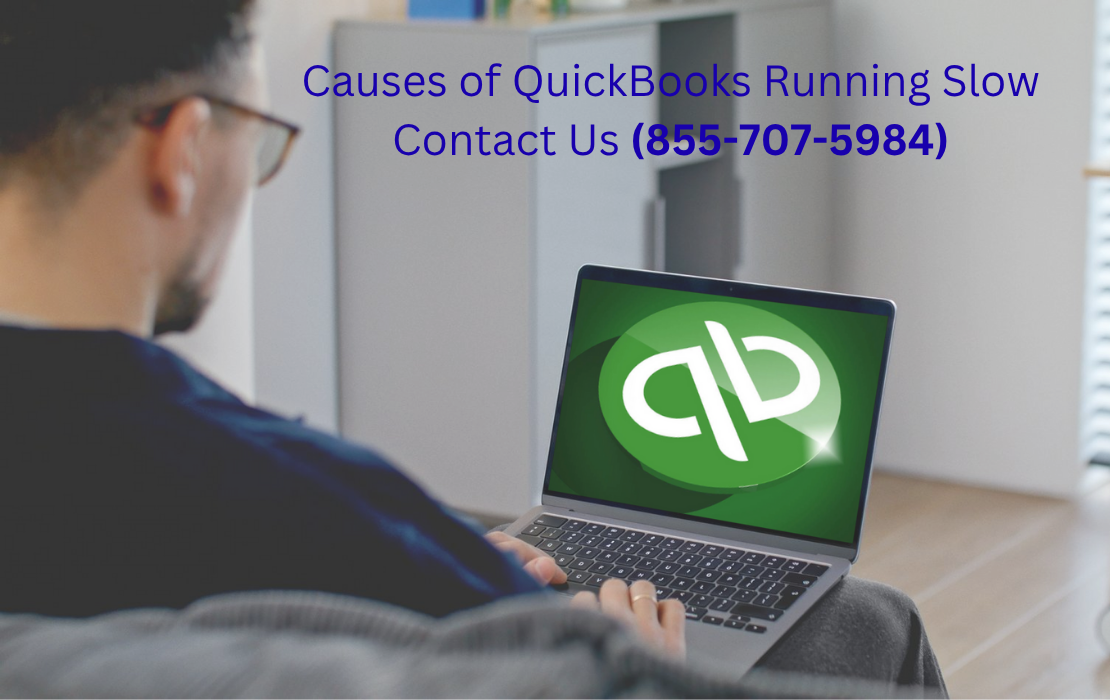Many users face problems when QuickBooks Desktop running slow, QuickBooks Online running slow, or even QuickBooks Enterprise extremely slow during important tasks like opening company files, moving between different sections, or working in multi-user mode. These issues can also show up when QuickBooks running slow over network or when someone says, “my QuickBooks is running slow.” The good news is that once you know what’s causing the slowdown, fixing the problem becomes much easier.

When QuickBooks starts running slow, it’s usually because of a performance issue in your computer, your network, or even inside your QuickBooks company file. These slowdowns can happen whether you’re dealing with QuickBooks Desktop running slow, QuickBooks Online running slow, or QuickBooks Enterprise extremely slow during daily tasks. Below are the most common reasons behind QuickBooks running slow over network, slow desktop performance, or QuickBooks online slow performance.
As your QuickBooks company file gets bigger over the years—with more invoices, payroll records, inventory details, and other transactions—it becomes harder for the system to handle each task quickly. A large or fragmented file can make QuickBooks running slow, especially when opening data, searching, creating reports, or saving changes. This is one of the common reasons users notice QuickBooks Desktop running slow or QuickBooks Enterprise extremely slow during everyday work.
QuickBooks needs enough RAM, CPU power, and disk space to run smoothly. If your computer doesn’t meet these requirements, you may notice QuickBooks running slow, delays, freezing, or lag when moving through QuickBooks Desktop running slow 2022 or even QuickBooks Online running very slow. Ensuring your system is up to date can significantly improve performance.Sample text. Click to select the Text Element.
If your team uses QuickBooks over a network, slow connections or poor network performance can make QuickBooks running slow over network. Issues like server congestion, weak routers, or interference can cause delays when opening files, switching modules, or performing tasks in QuickBooks Desktop running slow or QuickBooks Online slow performance. Optimizing your network can help fix these slowdowns.
One of the main reasons my QuickBooks is running slow is outdated software. Always make sure your QuickBooks Desktop running slow version is updated. QuickBooks updates often bring performance improvements and bug fixes that can help fix slowdowns and improve overall speed.
To troubleshoot QuickBooks Desktop running slow, follow these steps:
To resolve issues with a corrupted company file, use the QuickBooks Verify and Rebuild Data Utility. This tool can help fix errors that may cause QuickBooks Desktop running slow or QuickBooks Enterprise extremely slow, ensuring your company file works properly.
To reduce the size of a large QuickBooks company file and improve performance:
If QuickBooks is still slow after this, move on to the next troubleshooting step. This method can help fix QuickBooks Desktop running slow 2022 or QuickBooks Enterprise extremely slow performance.Sample text. Click to select the Text Element.
To fix installation or performance issues like QuickBooks Desktop running slow 2022, you can use the QuickBooks Tool Hub:
To fix issues like QuickBooks running slow or errors during updates, you can use the QuickBooks Install Diagnostic Tool to detect and repair problems with .NET Framework, MSXML, and C++ files on Windows.
Here’s how it works:
After restarting, open QuickBooks to see if performance has improved. This tool can help resolve issues causing QuickBooks Desktop running slow 2022, QuickBooks Online running very slow, or QuickBooks Enterprise extremely slow. If problems persist, continue with additional troubleshooting steps.
To check if network issues are causing QuickBooks running slow, you can test QuickBooks in a multi-user setup. If performance issues appear when multiple users are logged in, follow solution 5. If QuickBooks is running slow even with just one user over the network, try these steps: